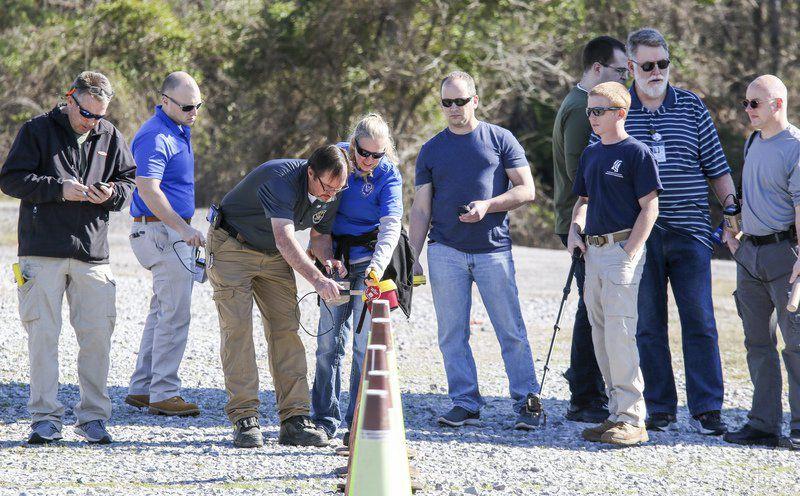The Meridian Public Safety facility hosted a radiological specialists class Thursday in an effort to be proactive in dealing with accidents involving radioactive materials.
Emergency management professionals from across the country joined local workers to learn about the dangers of radiological waste and how to deal with the threats.
Live radioactive materials were used on site at the training facility, to simulate real world situations.
Doug Stephens, director of public safety for the city of Meridian, says this event was beneficial for the city and its citizens.
“We have radiological material that passes through our community on a regular basis, and we’re just training these individuals to be prepared to deal with any radiological incident that happens,” Stephens said. “I want the citizens to understand that the City of Meridian, Lauderdale co, the state of Mississippi… our goal is to be proactive and prepared, we do not want to be reactive if possible.”
The class had 35 students enrolled, 19 of which were from out of state, representing 10 additional states, Stephens said.
Paula Merritt / The Meridian Star
An instrument measures the presence of radiation during training Thursday at the Lauderdale County Public Safety Facility.
“All this is leading up to a state level exercise that we will host in the spring that will show our preparedness and show why we’ve had this level of training brought here,” Stephens said.
The class is not only a way for the city to have trained professionals in case of an accident, but it also brings visitors to the city that would normally not be there, according to Stephens.
Robert Sims, from the department of radiological health in Jackson, said that the event was “a great thing.”
“The training is designed to teach response and enforcement personnel and any other radiation responders in the state of Mississippi how you might detect and I.D. radiological threats. Sometimes these threats can be mixed with explosives, they can make improvised nuclear devices and dirty bombs,” Sims said.
“But the training today is to help us to learn how to localize those threats and neutralize the threats.”
“Having individuals that are trained and prepared is critical, and having an opportunity whether its once a year or once every five years to have that specialized training brought here to our region is very critical,” Stephens said.


